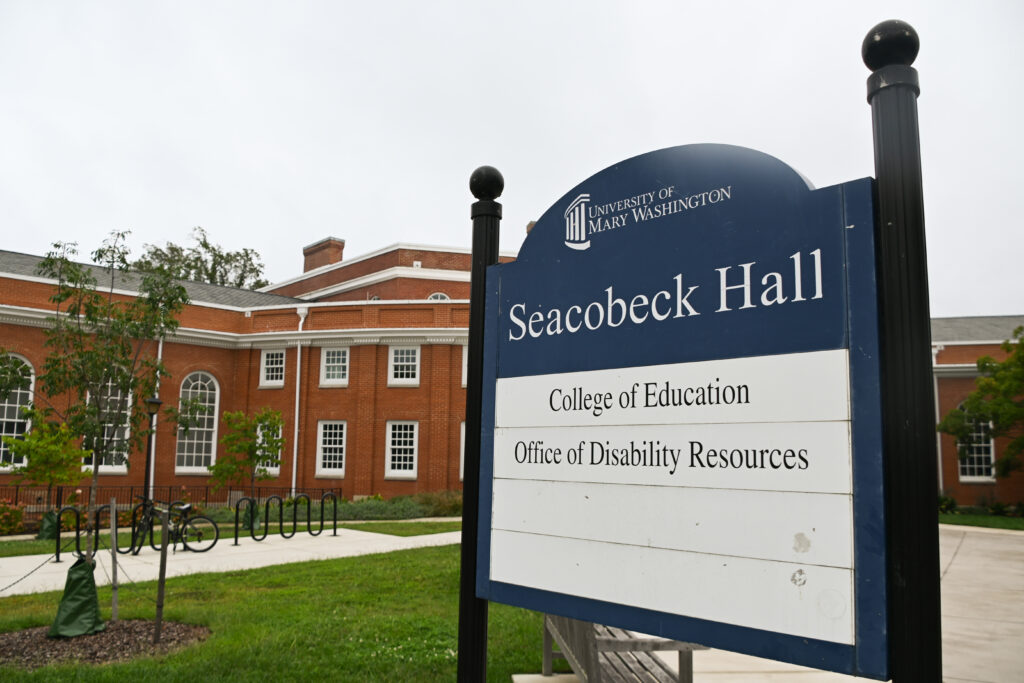Virginia legislature eliminates standardized communication and literacy assessment for prospective educators
3 min read
The Virginia Communication and Literacy Assessment is no longer required as a part of the process to obtain a teaching license. | Abbey Magnet, The Weekly Ringer
by ENYA CEA-LAVIN
Staff Writer
Over the summer, Virginia Gov. Glenn Youngkin approved House Bill 731. This piece of legislation eliminates the Virginia Communication and Literacy Assessment as part of the initial licensure requirement.
The elimination of this requirement meant that students struggling to complete the exam were allowed to submit supplemental test scores from other exams, and future students have one less requirement to pursue their teaching license.
Student’s feelings regarding the removal of the VCLA are generally positive as it eliminates a hurdle for prospective educators. The assessment previously cost between $90 and $130 and many students had to take it more than once to pass.
Josie Lewis, a junior elementary education major, expressed her relief at the elimination of the VCLA. She foresees it as having a positive impact on the profession as it allows a more diverse group to become educators.
“It could also make the path to becoming a teacher more accessible to a diverse group of candidates who might otherwise be discouraged by the additional testing requirement,” she said.
Students that experience exam anxiety may now have a better chance of pursuing their passion without having to worry about how their anxiety would skew their exam results. Instead of reflecting a student’s knowledge, the VCLA may have been a wall that has unintentionally kept many out of the field.
“It adds another layer of stress and financial burden on aspiring teachers who already face numerous challenges in their education and training,” Lewis said.
As the VCLA needs to be passed by the end of one’s first practicum experience, usually spring of their sophomore year, it “may not always accurately reflect an individual’s teaching abilities or potential to connect with students,” Lewis said.
Hana Abed, a sophomore majoring in elementary education, spoke on how elimination of the VCLA will not have much of an effect on teacher’s qualifications due to other requirements, such as the Praxis Exam, which tests the knowledge of a future educator’s subject of desire.
“Teachers still have to take the Praxis exams, so I do not think the VCLA not being in place will make or break on whether good teachers are entering the field,” Abed said.
Although taking away the VCLA removes test anxiety and financial burdens, some worry of a potential decrease in literacy knowledge. Lauren Van Valzah, a junior history major who left the education program, spoke on how removing the VCLA may erase a literacy standard for teachers.
“I think the elimination of the VCLA could affect the accountability and standards we have set for future educators,” she said. “It helps hold educators accountable as they are expected to be proficient in basic studies such as reading and writing to better inform the students that will come into their classroom.”
Without this standardized measure, there might be some concerns about whether all educators are meeting the same baseline of competency. Lewis mentions that if future educators are not being taught communication and literacy as part of preparation during undergraduate studies, there may be an issue with removing the test.
“It definitely has the possibility of hindering educators’ knowledge as they are no longer being forced to master basic skills within the subjects of reading and writing,” Van Valzah said.
As UMW, and Virginia universities as a whole, react to this change, the College of Education remains unchanged in curriculum and standards. Ensuring students will receive an education intended to prepare them for a variety of teaching situations.


